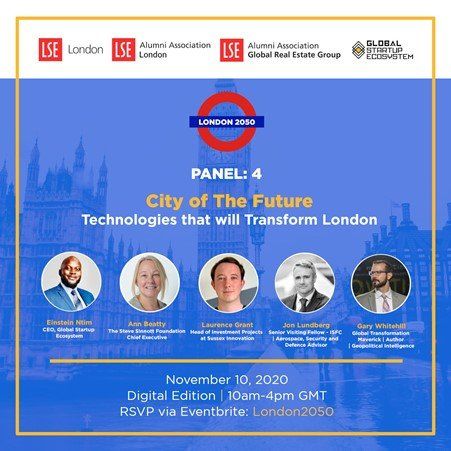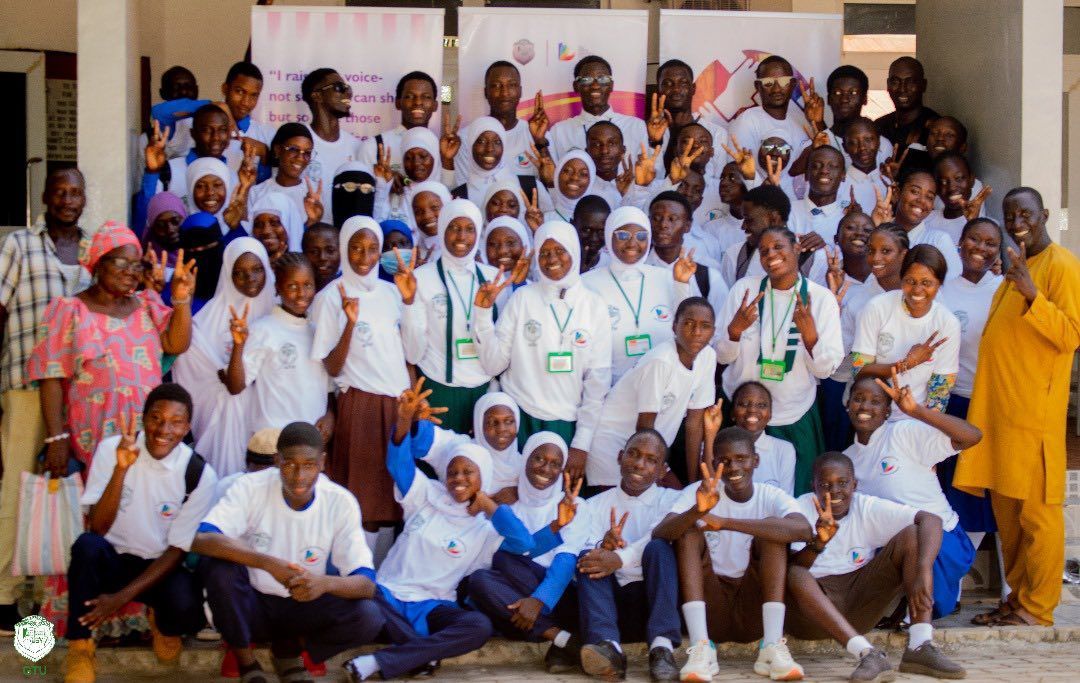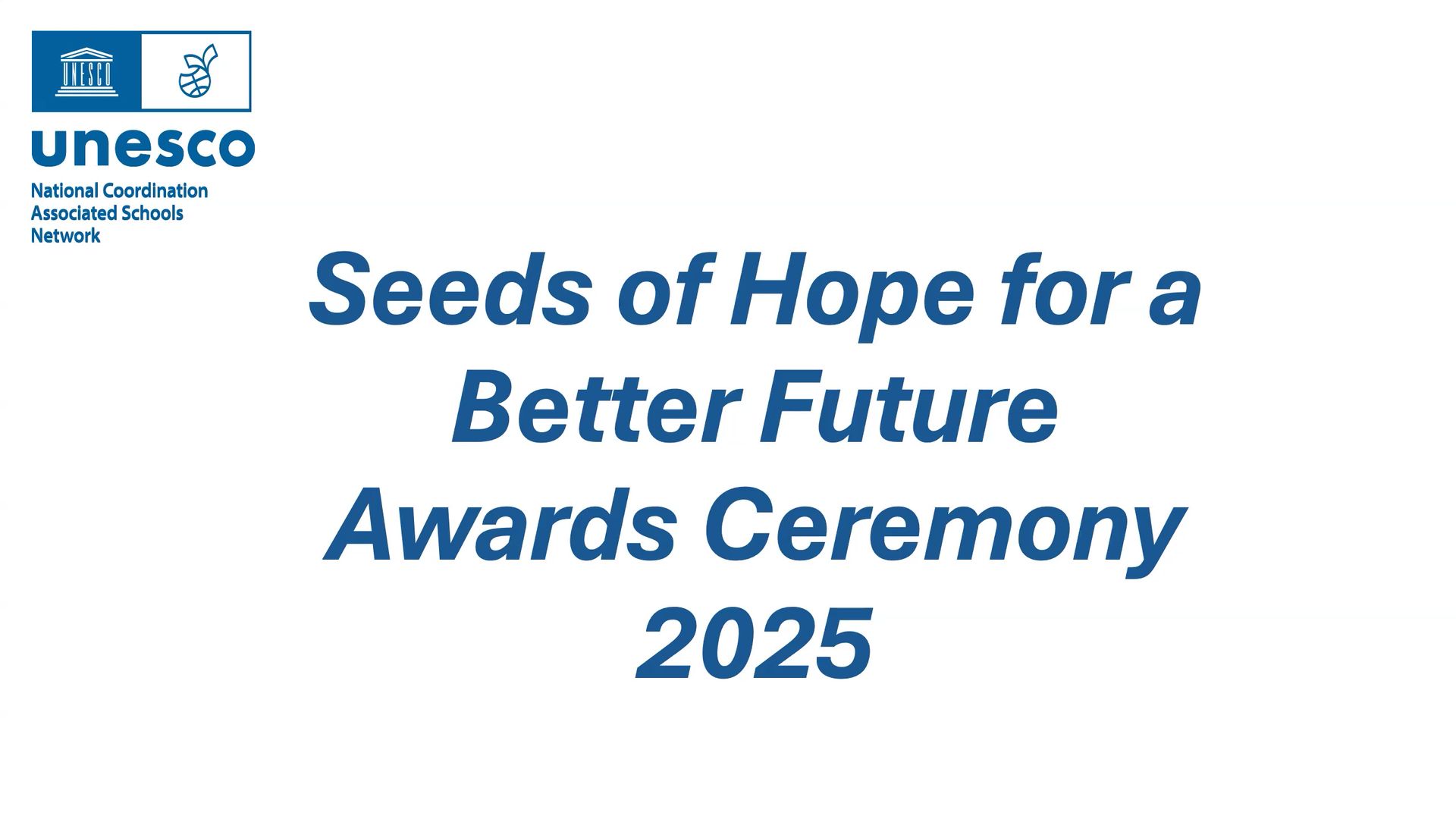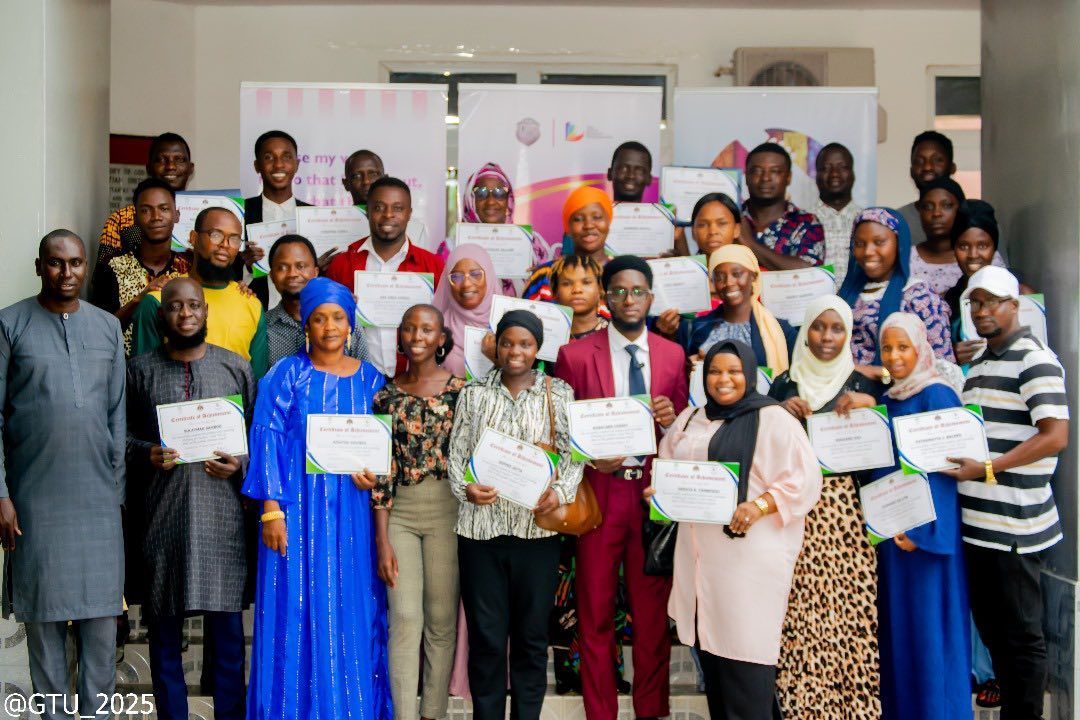London 2050 Summit – City of the Future

This week Ann Beatty was invited onto the panel of the London 2050 Summit to join the discussion on how technology will continue to shape our lives, and to offer a perspective of what the implications are for global education.
In the U.K. and globally, the pandemic has seen large numbers of people forced to work and socialise from home. Most of us are discovering new technology and experimenting with how it can be used to fill the gaps left by the various lockdowns. For some it means looking at entire home automation to enhance home life, work and entertainment life, and including these ideas in the new housing construction work of the future. For others it means questioning the pervasive role of technology in our lives, and building a future directed by human needs, not the needs of productivity and profit in isolation.
Technology is exciting, the possibilities are limited only by our imagination, and our development funding. So much is possible, but we need to make sure it is always fit for the purpose it is being used for. Algorithms are not better than teachers at predicting grades. Internet lessons can be a good way to deliver some aspects of education, if you have a stable internet connection and a device to study on, but online learning cannot replace professional expertise and the passion of teachers who inspire learning in students.
We have to be aware of the way we use technology to educate ourselves too, the potential for “Generation Google” is a double edged sword. It’s brilliant what we can learn and discover on YouTube and Google, but we have to be aware of the algorithms that are putting the content we consume up onto page 1 of a Google search.
The fact is we need the right technology for the right situation. In The Gambia we found that solar radios were the right solution, to take into account not only a lack of internet connection, lack of equipment, and a lack of access to power. Working in a diverse range of countries makes us acutely aware of the limitations of the technology we have. Our technological advances are still very dependent on infrastructure put in place decades ago. Where that infrastructure does not yet exist, our technology fails. Likewise, if our infrastructure fails so does the technology that we now wholly rely on too. By including everyone in the picture of development we are finding a more robust and sustainable way forward for everyone.
The new 5G network forces a network structure based on digital capitalism. Potential threats to cyber-attack, sharing and use of our data. We need to keep our focus on how to use data to benefit humankind rather than just distract us from the gravity of our current situation.
We are already testing the boundaries of the tech world we have built. The Social Dilemma documentary by Jeff Orlowski (2020), highlights the dangerous impact of digital social networking. The need to connect is a very important drive, and if our connections, our communities and even community spaces are all brought online, then we lose a fundamental part of that connection, especially the power of physical touch. The Covid-19 lockdown periods have been like an experiment in how far can digital socialising go. Our experiences with this range from frustration and isolation to the joy and convenience of being able to chat with someone on the other side of the world without having to travel.
In education there is definitely a global digital divide, not all children have access to technology and yes, many children are addicted to smart phones but you cannot learn effectively on smart phones. In many families they do not have a quality laptop or computer, they may not have the space to learn in their homes. We are in a situation where the U.K. government set up a scheme for laptops to be provided in April of this year to families who needed them but the outcome was that only 37% of children who needed them were able to access these devices (Children’s Commissioner Aug 2020). If we cannot feed our children adequately and many families have to visit food banks there needs to be a review of the whole system as hungry children cannot learn even if they have access to the technology. We now have the time to Reflect, Re-imagine and Reset learning but it will need investment and we must not miss this opportunity globally.
We need to invest in education, and for that we need to go back to basics. we need a method of delivering quality education to people, we need to connect with each other, to make the connection with each other, ourselves and the world.
Clearly technology is a brilliant tool to transform our world, and tackle our deepest challenges too. It just has to be fit for purpose. So sometimes we have to remember that the low-tech solutions can be the best. Not everyone has access to the technology that others take for granted. Most of us are not in control of the technology we are surrounded by.
So, this is what we need to be asking. Is this technology being used for the advancement of the human race, is it inclusive and is it sustainable? If it is driving the divides between people, if it is only being harnessed for productivity and the profits of a minority and driving the chasm between the wealthy and poor, then maybe we need to take action to alter the direction. When do we have enough technology? Doesn’t that depend on what we are using it for?
To move forward, we need to ask the right questions.
Gary Whitehall ended our panel discussion with this: If you want to do one thing that will make a difference, ask yourself this, “What can I heal?” Use technology to do that thing.
Thank you, please tell us in the comments below what you will heal with technology.
The Steve Sinnott Foundation • November 12, 2020

In our continued commitment to ensuring quality and inclusive education for every child, we’ve taken our advocacy to a new level by empowering the next generation to lead the conversation. In partnership with The Gambia Teachers Union, we recently convened the Foundation’s Young Ambassadors for a vibrant day of engagement dedicated to promoting the right to education for all. The event brought together passionate students from selected senior secondary schools across Region One, including St. John’s School for the Deaf, to explore what it truly means to make education inclusive, equitable, and accessible to every learner.

The Steve Sinnott Foundation is proud to celebrate the inspirational winners of the 2025 Seeds of Hope for a Better Future competition, a global initiative supported by UNESCO that brings together creativity, community, and a shared commitment to peace and sustainability. This unique project invited schools across the world from nursery and primary through to secondary and high school to explore the values of peace, cultural understanding, and care for the planet. In the face of climate change, young people were asked to tell their stories through art, performance, and digital creativity, highlighting how small seeds of action can grow into powerful movements for hope. The results have been extraordinary. Schools in France, the UK, Gambia, Haiti, and Kenya have been recognised for their outstanding contributions, with projects ranging from community gardens and sculptures to dance performances and illustrated stories. Each winner has shown how young voices and imagination can nurture peace and sustainability in ways that inspire us all. The full Awards Ceremony can be watched linked here: S eeds of Hope For A Better Future Awards Ceremony 2025 Highlights from the Winners Oak View Primary and Nursery School (UK) created Faces of Feeling, a collection of joyful sculptures already exhibited in a local gallery. Judges praised their work as supporting the wellbeing of others and embodying the idea of children as true “Seeds of Hope.” St Joseph’s Senior Secondary School (Gambia) painted Campaign for a Sustainable Banjul , reflecting real-world climate action in their city. The judges described it as “a most deserving and robust winner.” In France , the Jardin d'Enfants des Nations Unies (United Nations Nursery School) won hearts with Wind of Peace , where 5-6 year olds combined drawings, paintings, and tree planting to champion reforestation. Lyng Hall Secondary School, Coventry (UK) collaborated with Henley Green Primary and the UK Literacy Association to produce The Heart Shaped Hole – an innovative and metaphorical take on Seeds of Hope. Earlsdon Primary School, Coventry (UK) impressed with Primary Plot , a project that included gardening with the visually impaired, reflecting inclusivity and sustainability. A remarkable cross-collaboration between 21 schools across West Yorkshire, Essex, and Tower Hamlets (UK) resulted in Lights, Camera, Score , an ambitious combination of animation, music, and storytelling. CIMA Community School of Hope, Haiti shared Konbit - a video of dance and solidarity, inspiring villages to work together for peace and dignity. Daraja Academy, Kenya presented an ambitious and optimistic project integrating sustainability into everyday school life. Celebrating Creativity and Peace This year’s competition was judged by an impressive panel of artists, writers, and cultural leaders including Sir Antony Gormley, Edmund de Waal, Dame Liz Forgan, Hugh Quarshie, and Rathna Ramanathan. Their collective expertise highlighted the quality and depth of the entries, each of which showed how art can be a powerful tool for global understanding and change. The Seeds of Hope initiative is part of UNESCO UK’s Arts and Culture for Peace programme, first launched in 2022. It has grown from earlier collaborations such as the Coventry Young Ambassadors’ Islands of Peace Japanese Garden , opened in 2021 a living reminder that seeds planted in communities can continue to flourish. Highlights from the ceremony can be found here at this playlist Looking Ahead As Ann Beatty, UNESCO ASPnet UK National Coordinator , shared: “The quality of entries was extraordinary. We are delighted at the response to this amazing initiative in collaboration with our international partners.” And in the words of judge Jannette Cheong : “Young people around the world understand well the value of peace and tolerant relationships between cultures. Their creativity is an inspiration to all of us.” At The Steve Sinnott Foundation, we believe that education is the seed from which hope grows. The Seeds of Hope competition is a shining example of how young people through creativity, compassion, and collaboration are already shaping a more peaceful and sustainable future. You can access the full online awards presentation here: Seeds of Hope For A Better Future Awards Ceremony 2025

The journey to strengthen the well-being and success of learners in The Gambia continues with a renewed commitment to guidance and counselling in schools. By August 14th 2025, we have successfully trained 140 educators across 𝐑𝐞𝐠𝐢𝐨𝐧𝐬 𝟏, 𝟐, 𝟑 & 𝟒 under our Guidance & Counselling Programme. A programme designed to equip educators with the skills to support students’ academic, social, and emotional development. Region 3 Teachers Complete Level 2 Training On Wednesday, 6th August, thirty teachers from Region 3 (North Bank Region) began a three-day Level 2 Guidance and Counselling training at the Christian Council in Kanifing. This programme built on their earlier Level 1 training in Farafenni, with a focus on deepening their capacity to serve as school-based counsellors. The training concluded with a certificate presentation ceremony, recognising the teachers’ commitment and marking an important step in their professional development. These certificates symbolize more than an achievement; they represent each teacher’s readiness to provide psychosocial support, guidance, and mentorship to learners across their schools.


